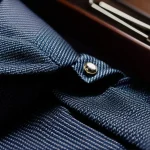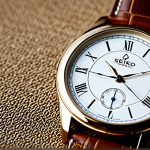Overview of Ethical and Sustainable Fashion
Understanding the landscape of ethical fashion is crucial for today’s conscientious consumer. Ethical fashion prioritises fair labour practices, humane treatment of workers, and environmentally sustainable materials. This trend responds to increasing awareness and demand for transparency in the fashion industry. Particularly noticeable is the shift towards sustainable women’s coats. These coats are crafted using eco-friendly practices that minimise carbon footprints, utilise organic or recycled materials, and ensure durability to reduce waste.
The growing interest in eco-friendly clothing is not just a passing phase, but a significant shift in consumer behaviour. More consumers are choosing brands that align with their values concerning environmental impact and ethical labour practices. This movement highlights the broader cultural shift towards sustainability that extends beyond individual purchases.
This might interest you : Top seiko arabic dial watches: unveil authentic style
Consumers are now more informed than ever about the implications of their fashion choices. They demand sustainable women’s coats that offer the perfect blend of style, comfort, and conscience. In this changing paradigm, businesses that adapt to these ethical and sustainable principles often earn greater respect and loyalty from their customers.
This transformation towards ethical and sustainable fashion forms a promising horizon for both consumers and producers, setting new norms for eco-friendly clothing in the industry.
Also to discover : Discover the Top UK Lingerie Retailers for Expert Fitting Advice
Top UK Retailers for Ethical and Sustainable Women’s Coats
Navigating the fashion world for sustainable and ethical coats can be daunting, but several standout UK retailers have embraced eco-conscious practices. These stores offer a variety of options, ensuring that consumers can make environmentally informed fashion choices.
Brand Spotlight: Thought Clothing
Renowned for its commitment to sustainability, Thought Clothing promotes a relaxed yet chic aesthetic. They focus on using bamboo, hemp, and organic cotton, minimizing the use of water and harmful chemicals. The brand offers an array of stylish coats, from tailored trench coats to cozy parka jackets. Prices range from £75 to £200, catering to different budgets while maintaining quality. Customers appreciate their focus on both style and sustainability, providing positive feedback on the durability and design of their garments.
Brand Spotlight: People Tree
People Tree sets the bar high in sustainable fashion with its emphasis on fair trade and ethical practices. Known for pioneering organic cotton clothing, they offer a diverse range of coats in innovative fabrics such as Tencel and recycled wool. Popular styles include classic pea coats and modern cape jackets. Consumer reviews consistently highlight the brand’s transparency and the longevity of its products. Prices typically vary between £100 and £300, aligning with the value placed on ethical production.
Brand Spotlight: Finisterre
Finisterre’s dedication to ethical labor practices is evident in their production processes. The company prides itself on sourcing materials like recyclable polyester and biodegradable fibres for their coats, which come in diverse designs from insulated jackets to waterproof shells. Customer insights often focus on the brand’s seamless blend of functionality and environmental responsibility. The price range is usually from £150 to £350, reflecting the quality and ethical standards upheld.
Materials Used in Sustainable Coats
Selecting the right sustainable fabrics for coats is crucial in promoting environmentally friendly fashion practices. Eco-friendly materials like organic cotton, hemp, and bamboo have become popular due to their minimal environmental impact. Not only do these materials require fewer chemicals and pesticides, but they also use less water, supporting the preservation of natural resources. For warmth, wool from sustainably-raised sheep is an excellent choice, while recycled polyester helps minimize waste by reusing plastic material.
When considering biodegradable textiles, Tencel—a fabric derived from sustainably sourced wood pulp—is notable for its softness and strength. It breaks down completely without harming the environment. The use of such materials can significantly extend a garment’s lifespan, reducing frequent replacements and, consequently, waste production.
In addition to being environmentally friendly, sustainable fabrics provide unique benefits to coat wearers. Organic materials tend to be hypoallergenic, making them suitable for sensitive skin. Recycled textiles, on the other hand, can offer the same durability as conventional materials without the additional environmental cost. By opting for these materials, consumers not only enjoy quality and comfort but also contribute positively to ecological balance, promoting a future where fashion aligns harmoniously with planet conservation.
Pricing and Investment in Ethical Fashion
Navigating the world of sustainable fashion pricing often raises questions about the cost of ethical coats compared to fast fashion alternatives. At first glance, ethical fashion can seem expensive, but it represents a mindful investment. High-quality materials and responsible production processes typically come at a higher price. This is due to fair wages, environmentally friendly practices, and sustainable materials, ultimately offering better value for money.
Let’s delve deeper into the cost implications. While fast fashion might appear to save money initially, its lower durability often leads to frequent replacements, making it less economical in the long run. In contrast, investing in ethical coats ensures longevity and quality. These garments are crafted to withstand the test of time and trends, reducing the need to frequently update your wardrobe.
To budget for ethical fashion purchases without breaking the bank, consider these tips:
- Prioritise classic pieces that offer versatility and longevity.
- Look for sales or second-hand options for sustainable brands.
- Allocate a specific budget for ethical wardrobe additions monthly.
By focusing on the long-term benefits and planning purchases strategically, you can enjoy sustainable style that is both ethical and economical.
Tips for Making Ethical Purchasing Decisions
In the world of responsible purchasing, understanding how to make ethical decisions is crucial. To start, focus on spotting truly sustainable brands. Look beyond the marketing—examine a brand’s supply chain, labour practices, and environmental policies. Brands committed to ethical standards often transparently share details about their operations.
Certifications and Ethical Fashion
Certifications play a pivotal role in ethical fashion. They help verify a brand’s commitment to sustainability. Look for certifications such as Fair Trade, GOTS (Global Organic Textile Standard), and B Corp. These indicators often assure that a company upholds responsible labour practices and environmentally friendly production methods.
Evaluating Sustainability Claims
It’s essential to maintain a critical eye when evaluating sustainability claims. A helpful strategy is to research the materials and processes used by brands. Are they sourcing materials responsibly? Are they implementing waste reduction and energy-efficient manufacturing techniques? Scrutinising these aspects can help you discern genuine commitment from mere marketing.
In short, effective ethical shopping involves a mix of diligent research and critical analysis. Use these strategies and tools to align your purchases with your values, ensuring that your consumer habits contribute positively to the global community. This way, you partake in conscious consumerism that extends beyond transactions, fostering a positive impact worldwide.
Customer Reviews and Experiences
Understanding consumer reviews provides an insightful view into the real-world performance and appeal of sustainable coats. Customers frequently mention their positive and negative ethical fashion experiences, highlighting the importance of these reviews.
Compilation of User Feedback
A comprehensive overview of user feedback reveals varying levels of satisfaction with different brands. Generally, high-quality materials and ethical manufacturing processes receive significant praise. However, concerns often arise regarding price points and availability. These reviews help guide future purchasing decisions, offering valuable insights into quality, durability, and style consistency.
Many reviews appreciate the use of recycled materials and fair trade practices, reflecting a growing consumer awareness about sustainability. Conversely, feedback sometimes notes discomfort with the fit or discrepancies in product descriptions, prompting potential buyers to consider these factors.
Case Studies of Sustainable Purchases
Real-world examples show diverse customer journeys, each with its own unique motivations and challenges. One common thread is the balance between satisfaction and expectations, with many buyers reporting a gratifying feeling of contributing positively to the environment. Nonetheless, expectations occasionally misalign with reality, typically regarding the garment’s longevity and practicality.
Through these experiences, several tips emerge: researching brand credentials, understanding the intended use of the coat, and aligning expectations with investment levels. Learning from others’ ethical fashion experiences offers significant value, simplifying the path to making informed, sustainable fashion choices.
FAQs About Sustainable Coats in the UK
Understanding sustainable fashion can be overwhelming, with many consumer inquiries about the authenticity and eco-friendliness of materials used. Here are answers to some common questions about ethical fashion.
What defines eco-friendly materials in sustainable coats? Eco-friendly materials are those sourced with minimal environmental impact, such as organic cotton, recycled polyester, or wool. They are often produced using sustainable methods to reduce water consumption and chemical use.
Are there reliable brand certifications for sustainable coats? Yes, several certifications verify a brand’s commitment to sustainability. Look for labels like Fair Trade Certified, Global Organic Textile Standard (GOTS), and Bluesign. These certifications assure that the product meets strict environmental and social criteria.
How can I care for my sustainable coat to prolong its life? Proper care includes washing it less frequently and using eco-friendly detergents. For wool or delicate fabrics, opt for spot cleaning or professional dry cleaning using sustainable practices. Always follow the care label instructions on the garment.
For those eager to dive deeper into ethical fashion, numerous resources offer further insights. Websites dedicated to ethical consumerism, sustainable brands’ educational blogs, and fashion-focused environmental organisations can broaden your understanding and keep you updated on the latest sustainability trends.











